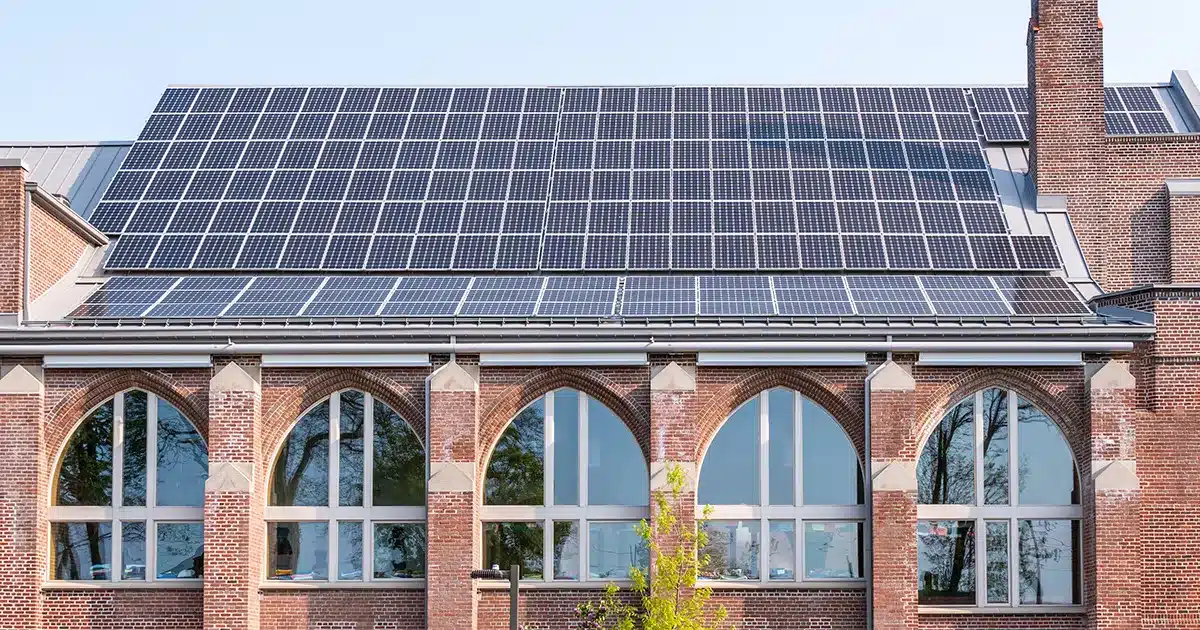Boarding houses in New South Wales can create quite a bit of confusion when it comes to building regulations: Does Section J or BASIX apply?
This article aims to clarify this, to ensure that builders and building certifiers have a clear understanding of their application.
Should your NSW boarding house follow Section J or BASIX? The simple answer is: It depends on the building classification.
Section J contains the energy efficiency provisions of the National Construction Code (NCC), and it applies to Class 2 to 9 Buildings. These provisions apply at the time of obtaining a construction certificate, such as after a DA has been issued, or complying development certificate (CDC).
The Building Sustainability Index (BASIX), on the other hand, is a broader set of sustainability controls applicable in NSW at the DA stage, applicable to Class 1, Class 2 and Class 4 buildings. In most cases, a boarding house is classified as a Class 3 building, which is clearly affected only by Section J. However, we often hear of Councils requiring a BASIX certificate in this situation.
The confusion appears to stem from Class 1b buildings which are small boarding houses, housing not more than 12 people and with not more than 300 square metres in area. Such developments do require a BASIX certificate.
However, once a boarding house accommodates more than 12 people or is over 300 square metres, it is classed as a Class 3 building. It’s now no longer subject to BASIX but must meet the Section J requirements.
Section J: For Class 3 Boarding Houses in NSW
Section J of the construction code outlines the energy efficiency provisions applicable to most residential and commercial buildings in Australia. The goal is to reduce operational energy consumption, minimising greenhouse gas emissions and lowering energy costs.
Section J Compliance for Boarding Houses
Boarding houses typically fall under Class 3 of the NCC classification. According to the Australian Building Codes Board (ABCB):
“Class 3 buildings are a common place of long term or transient living for a number of unrelated people. Examples include a boarding house, guest house, hostel or backpackers (that are larger than the limits for a Class 1b building).”
This is why if your boarding house construction or renovation is larger than 300 square metres or will house more than 12 people, you must comply with Section J. It specifies the requirements for:
- Thermal envelope, the building elements separating the conditioned space from the external environment, including walls, roofs, ceilings, floors, and windows
- Glazing types and window selection, which help in managing heat gain and loss in a building, plus solar control devices to optimise solar energy usage
- Airtightness, with limitations on air leakage rates to ensure the integrity of the building envelope
- Air-conditioning and mechanical ventilation, lighting, heated water supply, and energy monitoring and on-site energy distribution resources.
If you’re just renovating, read: Do I have to comply with Section J if I am only renovating?
Benefits of Section J Compliance
By adhering to Section J regulations, builders can construct boarding houses that comply with minimum energy efficiency standards. While these standards provide a baseline, striving for higher performance can lead to greater energy savings, reduced environmental impact, and improved occupant comfort, which can result in:
- Reduced Energy Bills: Energy-efficient buildings consume less power, leading to significant cost savings for boarding house owners and operators over time.
- Enhanced Occupant Comfort: Optimised thermal performance translates to a more comfortable living environment for boarding house residents, with consistent temperatures throughout the year.
- Environmental Benefits: Lower energy consumption equates to reduced greenhouse gas emissions, contributing to a more sustainable future.
For more details, read: What is a Section J Report?
To learn what other buildings require a Section J report, read: Which developments require a Section J Assessment?
BASIX: For Class 1b (Smaller) NSW Boarding Houses
BASIX is a sustainable design assessment tool mandated by the NSW government. You must comply with BASIX if your boarding house development is not more than 300 square metres or will house less than 12 people.
While Section J primarily focuses on energy efficiency, BASIX adopts a more holistic approach to sustainability, considering several key factors:
Energy Efficiency
Similar to Section J, BASIX evaluates a building’s operational energy use and sets performance targets to ensure energy efficiency. This includes the use of energy-efficient appliances and systems to reduce overall energy consumption.
Water Conservation
BASIX mandates the use of water-saving fixtures and fittings to minimise water consumption within the building. This is crucial for reducing the environmental impact and ensuring sustainable water use.
Thermal Comfort
Like Section J, BASIX addresses thermal comfort by evaluating building design and insulation levels. This ensures that buildings maintain comfortable indoor temperatures with minimal energy use, enhancing the living conditions for occupants.
Guidance for Your Boarding House Development
If you need further guidance, ask your certifier or building code consultant to confirm what class of building you are building. Is it Class 1b or Class 3? If it is Class 3 and a Council officer asks you to get a BASIX certificate, query them and show them a reference to which classes of buildings BASIX applies to.
Get it right.





